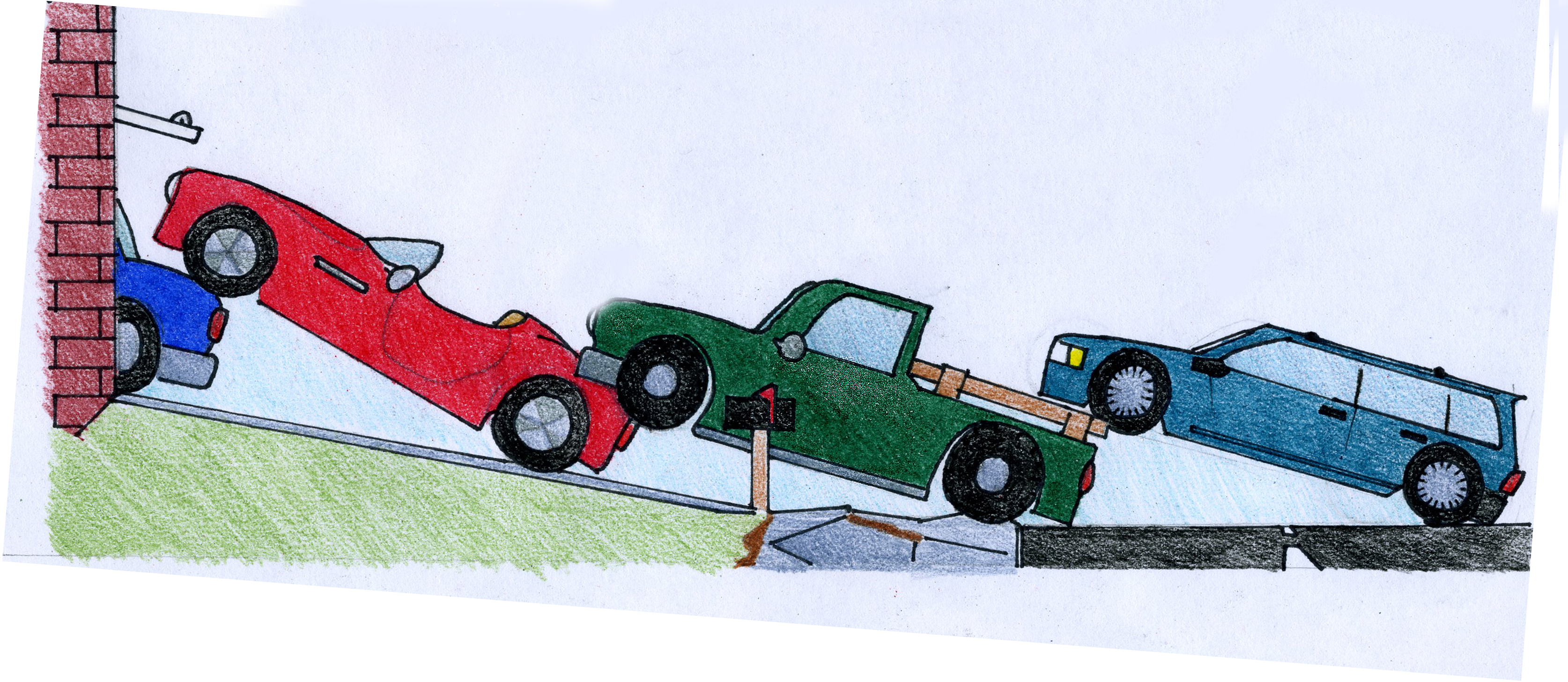Driving in the North Village can be something like a game, trying to avoid pedestrians, potholes and cars jutting out into the street.
Recently, the city left notices on cars saying that citations were soon to come for those who apron park, or illegally park partly on a driveway, with most of the car sticking out into the street. After many residents contacted the city, enforcement has been postponed. The city clearly made the right decision to delay ticketing the practice of apron parking, but the discussion shouldn’t end here.
Apron parking is only part of the issue in navigating the Village. The sidewalks are in complete disrepair, many of them don’t have ramps to the street, and the cracked streets must be a nightmare to try to navigate a wheelchair around. Illegal parking practice clearly adds to the problem and shouldn’t be allowed in the long run.
Further, charging for street parking could help solve the problem of parking allocation, and the revenue could help fix the local infrastructure.
Former governor of Massachusetts and visiting Professor Michael Dukakis said the issue of apron parking became real for him when he was nearly killed. As he was navigating around apron-parked cars on top of the hill on Strathmore, a speeding, oncoming car didn’t see him coming.
Only some 200 cars of the total 5,900 in the Village are apron-parked, according to a class project for Urban Planning 129 in 2006 and 2007 that analyzed parking issues in the North Village. Even though this is only 3 percent of parking spots, many have asked how residents will deal with the shortage.
But this issue needs to be reframed. We don’t have a shortage of parking in Westwood. We have a mismatch between residents needing parking and the places they can park.
The class project narrowed the scope of its data gathering to the area surrounded by Gayley, Strathmore and Midvale. For this five-block area, their report shows that there were some 1,839 cars and 2,023 legal parking spots.
But as anyone who lives in this area knows, there is no visible surplus of parking spots.
This clear misallocation of parking spots comes from an excess of two-hour parking and the fact that curb parking is free.
A majority of curb parking on Landfair, Midvale, Roebling, Veteran, Levering and Kelton avenues within the North Village are restricted to two-hour parking, according to a capstone project by undergraduate Daniel Hage in spring 2008.
The practice of two-hour parking helps businesses in Westwood Village because it creates turnover. In the apartment area, it gives visitors a place to park when visiting residents.
But the number of two-hour parking spots in the North Village outweighs the number necessary for business. Resident needs should get priority over potential visitors, and the city should remove these needless restrictions.
But the bigger issue is that street parking is free in Westwood.
“This is some of the most valuable land on earth, and we give it away for free and wonder why we’ve got a problem,” said Donald Shoup, professor of urban planning and a parking expert.
The curb spots should be converted into permit-parking spots. Putting a premium on parking, even if it’s a nominal amount, would discourage students from bringing cars to Westwood when they don’t actually need to. This would also raise revenue that could be used to fix sidewalks and streets.
About half of Westwood residents are new every year, according to Shoup.
So permits should be given to landlords instead of residents who change too frequently.
Many will be unhappy about having to pay for street parking, but we need to reduce demand for parking and raise revenue to return the streets and sidewalks to an acceptable level. More than 1,000 feet of sidewalk in the North Village are broken, according to Hage’s capstone project, and the revenue should be used to fix these issues first.
Apron parking makes Westwood difficult to navigate and doesn’t provide us with much actual parking. Instead, we should reduce two-hour parking and implement permit parking, which would help organize the mess of street parking and help improve our neighborhood.
Recently, organizations have helped give Westwood citizens a voice. The Westwood Neighborhood Council, Westwood Community Council and the newly formed Business Improvement District all have vested interest in improving Westwood and can help lead this effort.
North Village residents have taken action, calling City Councilmember Paul Koretz. His office has communicated our issues to the city, resulting in a suspension of ticketing for apron parking.
The university also has an interest in the upkeep of the North Village, as Westwood is UCLA’s home. The administration and student government can help give students a voice in fixing the Village we call home. One of the best universities in the world doesn’t need to be in a broken neighborhood.
Think street sweeping is a larger issue? Email Ramzanali at
aramzanali@media.ucla.edu. Send general comments to
opinion@media.ucla.edu.
